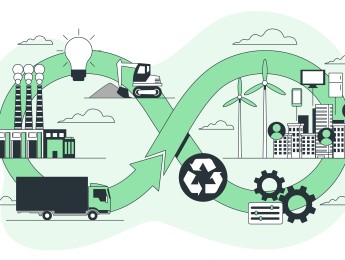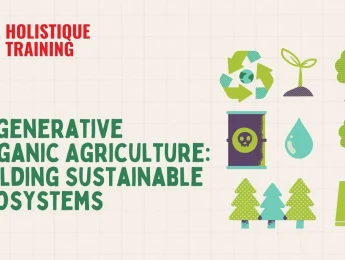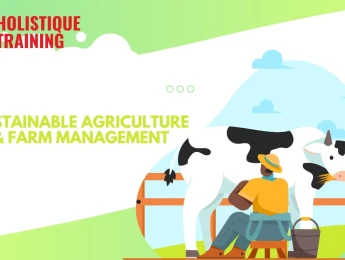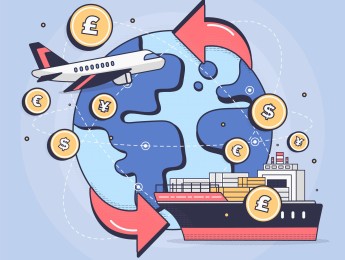Healthy ecosystems are essential to life on Earth, providing food, clean water, climate regulation, and cultural inspiration. As environmental pressures increase, the need to recognize and manage the value of nature in economic and policy decisions becomes more urgent. This course offers a practical and conceptual foundation in ecosystem services and natural capital, helping participants understand how to identify, evaluate, and protect the benefits that nature provides to people and economies.
Participants will explore different types of ecosystem services, learn about tools and methods used to assess and value them, and examine policy and business frameworks that support sustainable management of natural capital. Through real-world case studies and hands-on exercises, this course empowers professionals to integrate environmental thinking into planning, investment, and governance for long-term sustainability.
By the end of this course, participants will be able to:
- Understand the concepts of ecosystem services and natural capital.
- Identify provisioning, regulating, cultural, and supporting services in various ecosystems.
- Apply basic tools and methods for valuing ecosystem services.
- Explore how policy, planning, and business can incorporate nature's value.
- Develop strategies for ecosystem conservation and restoration.
- Communicate the importance of nature in economic and social development.
- Support sustainability goals through informed decision-making.
This course is ideal for:
- Environmental planners and sustainability strategists.
- Policymakers and regulatory authorities in environmental sectors.
- NGO staff and conservation practitioners.
- Ecologists, economists, and academic researchers.
- Community leaders involved in nature-based initiatives.
- Private sector professionals managing natural resource risks.
- Graduate students in environmental science, planning, or policy.
This course uses a blended learning approach combining expert presentations, simplified frameworks, real-world case studies, group exercises, and problem-solving workshops. Participants will engage in mapping ecosystem services, designing valuation models, and analyzing policy tools in an interactive and inclusive learning environment.
Day 5 of each course is reserved for a Q&A session, which may occur off-site. For 10-day courses, this also applies to day 10
Section 1: Introduction to Ecosystem Services and Natural Capital
- What are ecosystem services? Definitions and key ideas.
- Understanding natural capital: ecosystems as valuable assets.
- Historical background and scientific basis of the concepts.
- Why ecosystem services matter to people, economies, and climate.
- The difference between intrinsic and instrumental value of nature.
- Overview of global initiatives related to ecosystem services.
- Common misconceptions and communication challenges.
Section 2: Types and Functions of Ecosystem Services
- Provisioning services: food, freshwater, wood, medicine.
- Regulating services: air quality, water purification, climate regulation.
- Cultural services: recreation, spiritual value, sense of place.
- Supporting services: soil health, nutrient cycling, pollination.
- Real-life examples of ecosystem services in rural and urban contexts.
- Identifying ecosystem services in your local region.
- The role of biodiversity in maintaining ecosystem functions.
Section 3: Assessing and Valuing Nature’s Services
- Why valuation matters: making nature visible in decisions.
- Key methods: market pricing, replacement cost, benefit transfer, contingent valuation.
- Tools and databases: InVEST, TEEB, and other valuation platforms.
- Case studies: community forests, watersheds, and coastal systems.
- Limitations and ethical considerations in valuing ecosystems.
- Cost-benefit analysis for green infrastructure and land-use options.
- Data collection and stakeholder involvement in assessments.
Section 4: Policy, Business, and Governance Tools
- Integrating ecosystem services into national and local policy.
- Environmental Impact Assessment (EIA) and Strategic Environmental Assessment (SEA).
- Nature-based solutions in urban planning and infrastructure.
- Business strategies: supply chain sustainability and nature risk.
- Payment for Ecosystem Services (PES) and conservation financing.
- International frameworks: CBD, IPBES, SDGs, and more.
- Partnerships across government, private sector, and communities.
Section 5: Conservation, Restoration, and Future Directions
- Principles of ecosystem-based conservation.
- Restoration ecology: bringing degraded systems back to life.
- Community-based and indigenous-led conservation practices.
- Adaptive management: responding to change and uncertainty.
- Future trends: green economies, circular systems, and digital tools.
- Innovation and technology in ecosystem service mapping.
- Planning long-term strategies for sustainable natural capital use.
Upon successful completion of this training course, delegates will be awarded a Holistique Training Certificate of Completion. For those who attend and complete the online training course, a Holistique Training e-Certificate will be provided.
Holistique Training Certificates are accredited by the British Accreditation Council (BAC) and The CPD Certification Service (CPD), and are certified under ISO 9001, ISO 21001, and ISO 29993 standards.
CPD credits for this course are granted by our Certificates and will be reflected on the Holistique Training Certificate of Completion. In accordance with the standards of The CPD Certification Service, one CPD credit is awarded per hour of course attendance. A maximum of 50 CPD credits can be claimed for any single course we currently offer.
- Course Code PO2 - 130
- Course Format Classroom, Online,
- Duration 5 days













